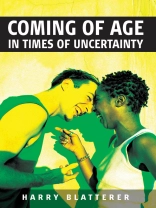Adulthood is taken for granted. It connotes the end of childhood, the resolution to the “storm and stress” period of adolescence. This conception is strongly entrenched in the sociology of youth and the sociology of the life course as well as in the policy arena. At the same time, adulthood itself remains unarticulated; journey’s end remains conceptually fixed and theoretically uncontested. Adulthood, then, is both central to the social imagination and neglected as an area of sociological investigation, something that has been noted by sociologists over the last four decades. Going beyond the overwhelmingly psychological literature, this book draws on original qualitative research and theories of social recognition and thus presents a first step towards filling an important gap in our understanding of the meaning of adulthood.
สารบัญ
Acknowledgements
Preface
Peter Beilharz
Introduction
Chapter 1. Representations of Adulthood
Chapter 2. Adulthood, Individualization, and the Life Course
Chapter 3. Adulthood and Social Recognition
Chapter 4. From Adulthood as a Goal to Youth as a Value
Chapter 5. New Adult Voices I: The Meaning of Adulthood
Chapter 6. New Adult Voices II: Without a Center that Holds
Conclusion : Redefining Adulthood
Epilogue
Bibliography
เกี่ยวกับผู้แต่ง
Harry Blatterer is Lecturer in Sociology at Macquarie University where he teaches introductory sociology, social theory and courses on the life course, generations and intimacy.












